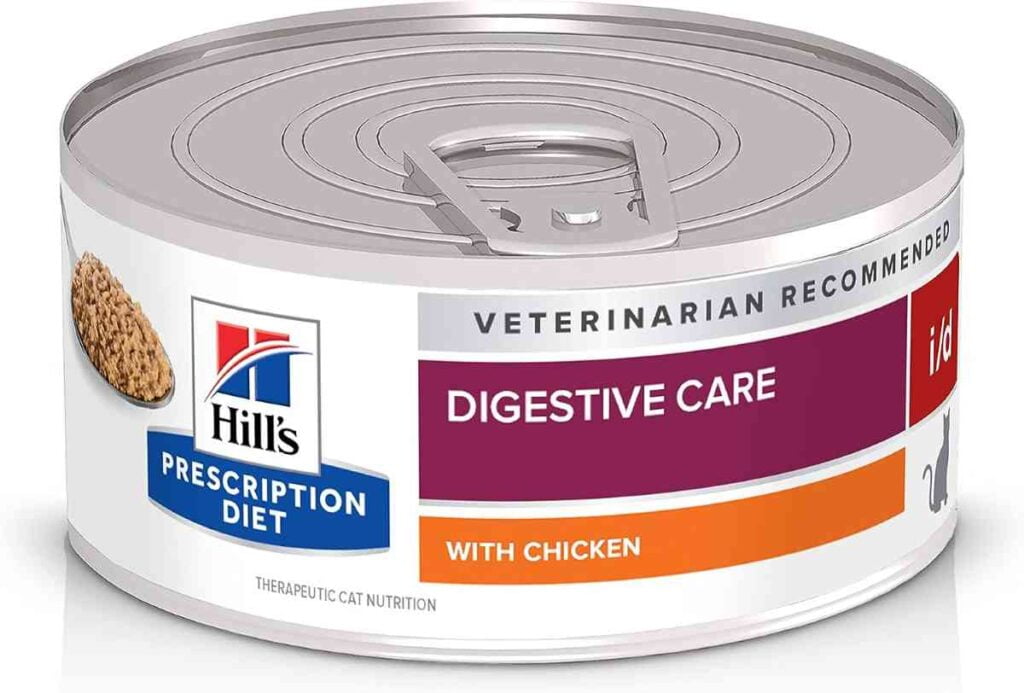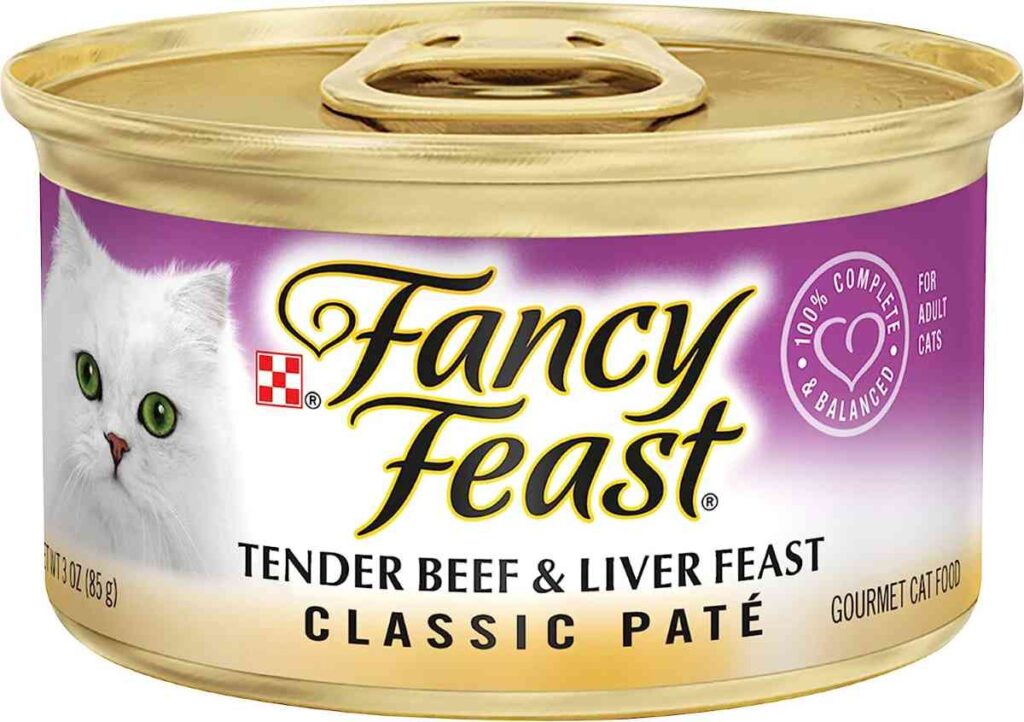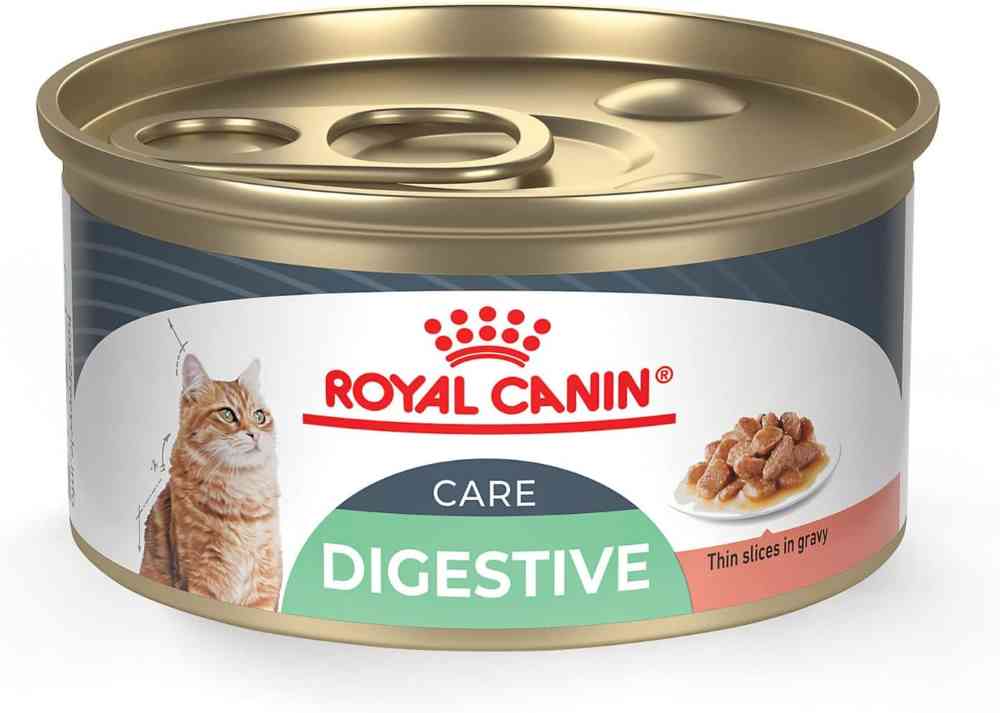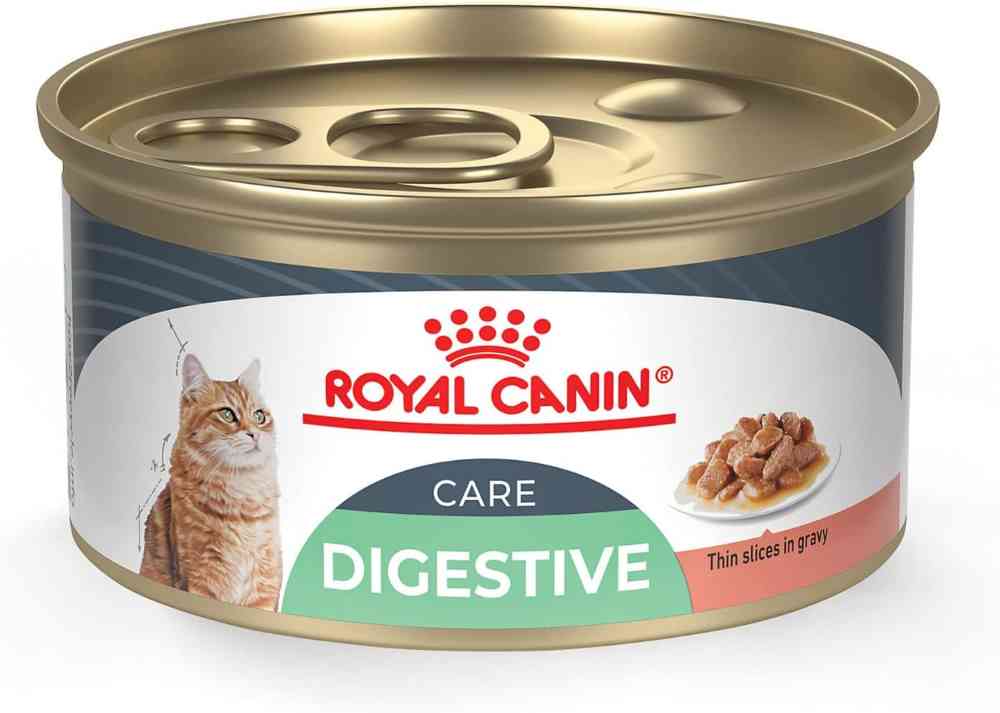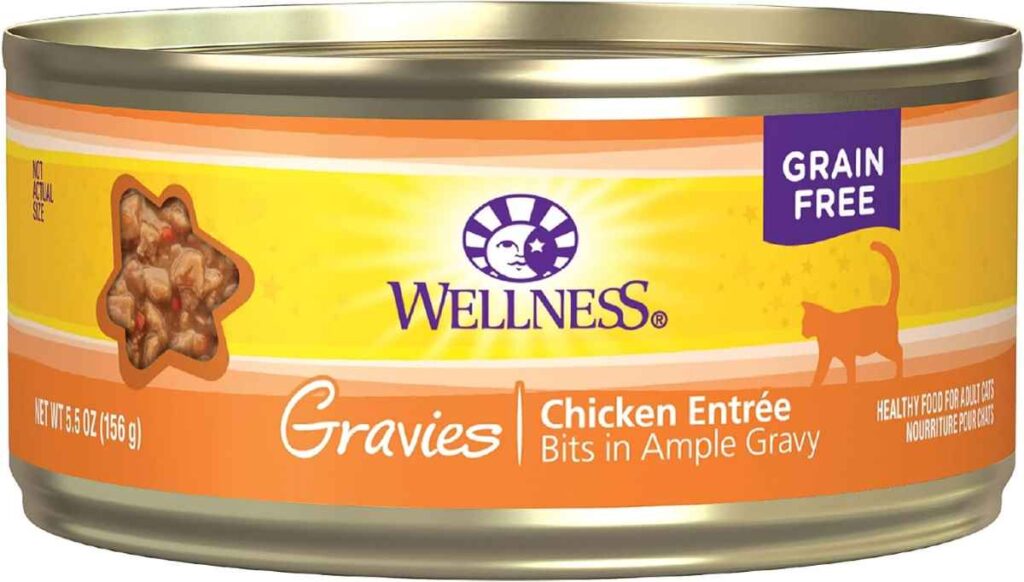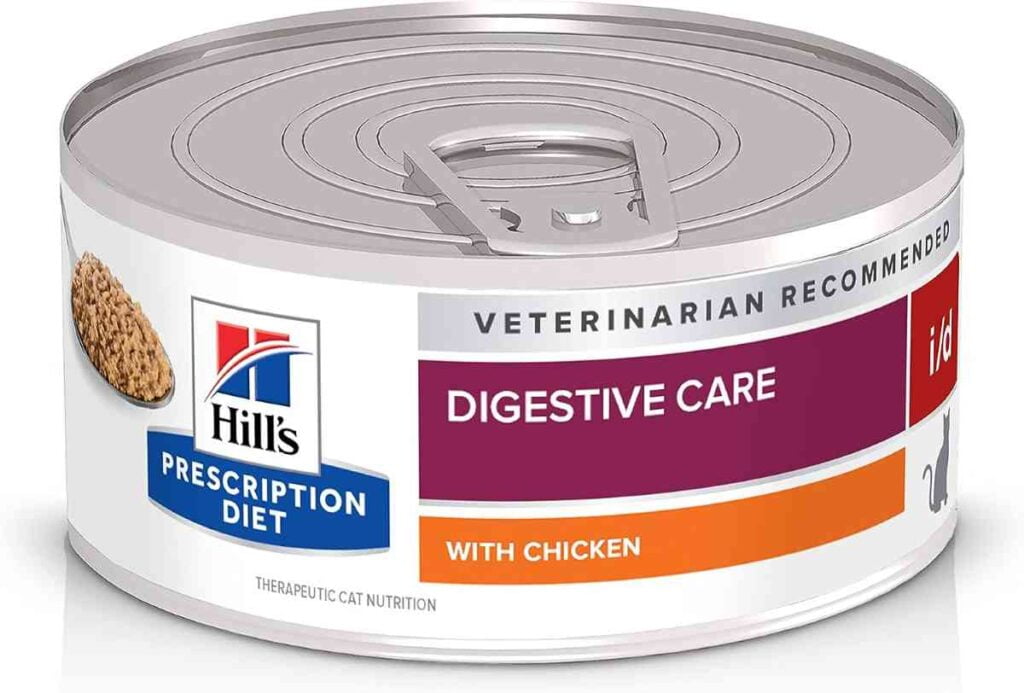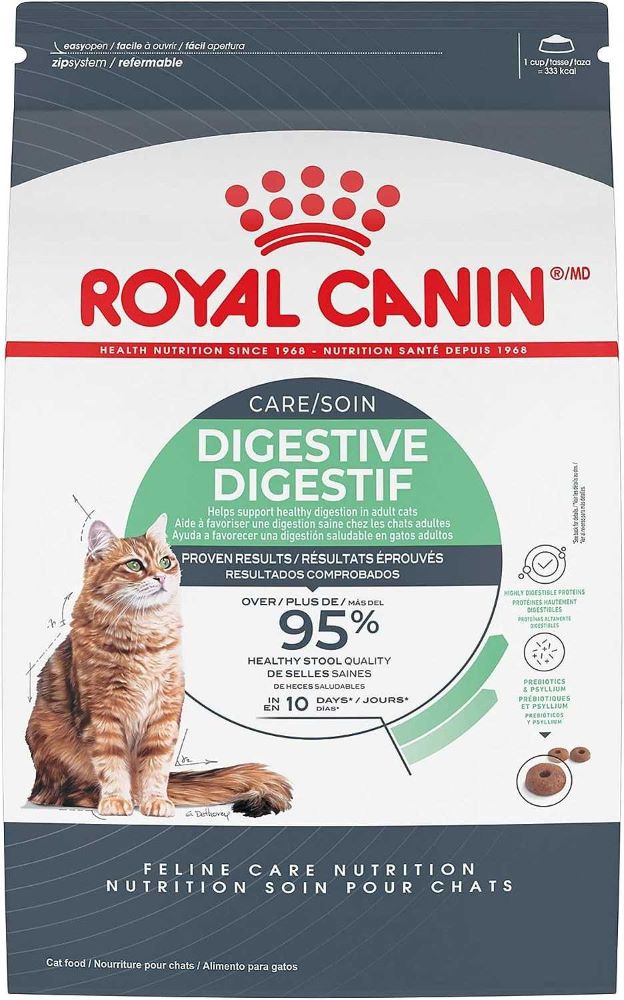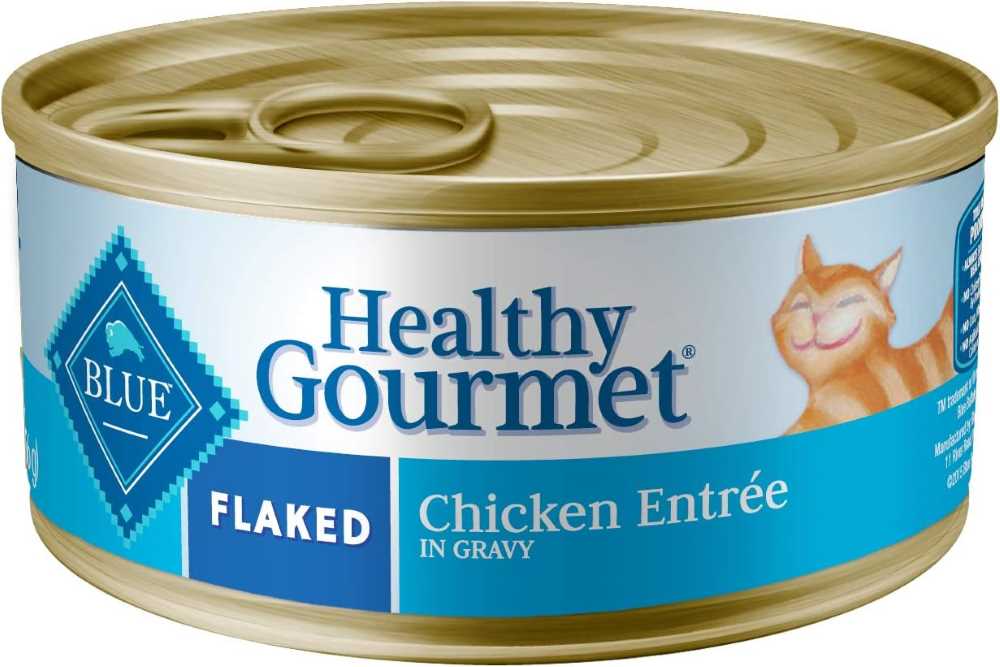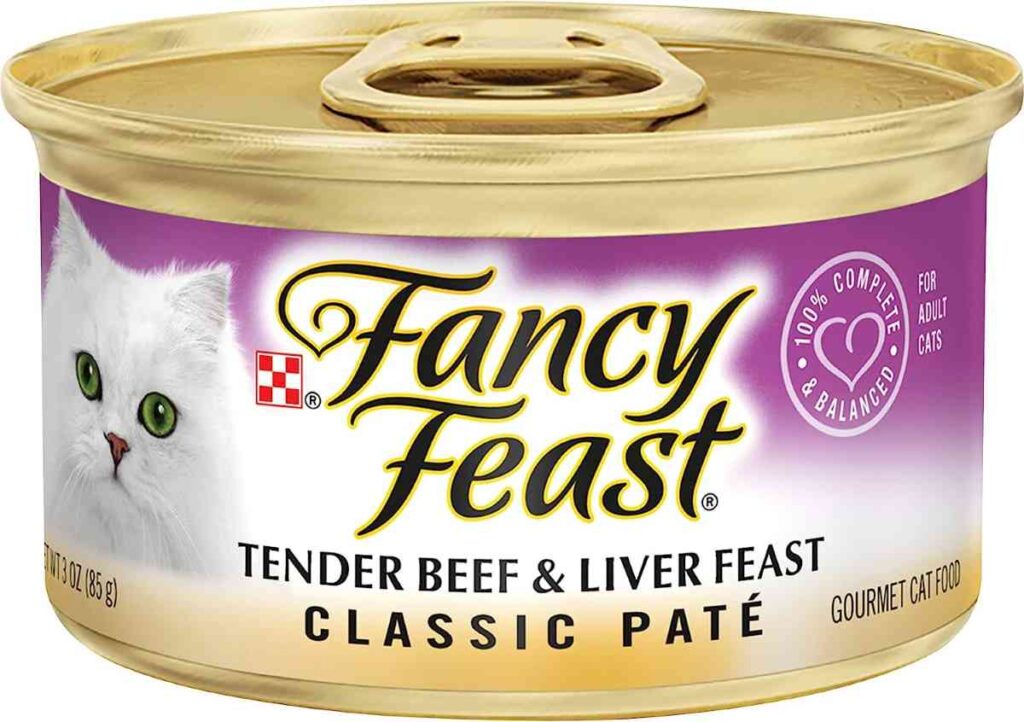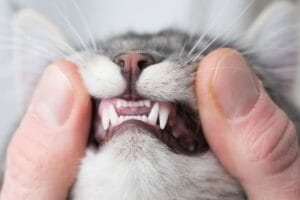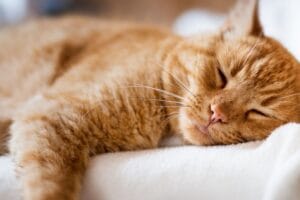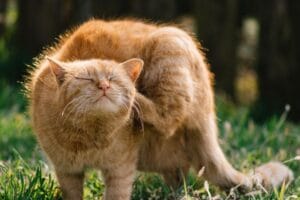Best Canned Cat Food For Liver Disease
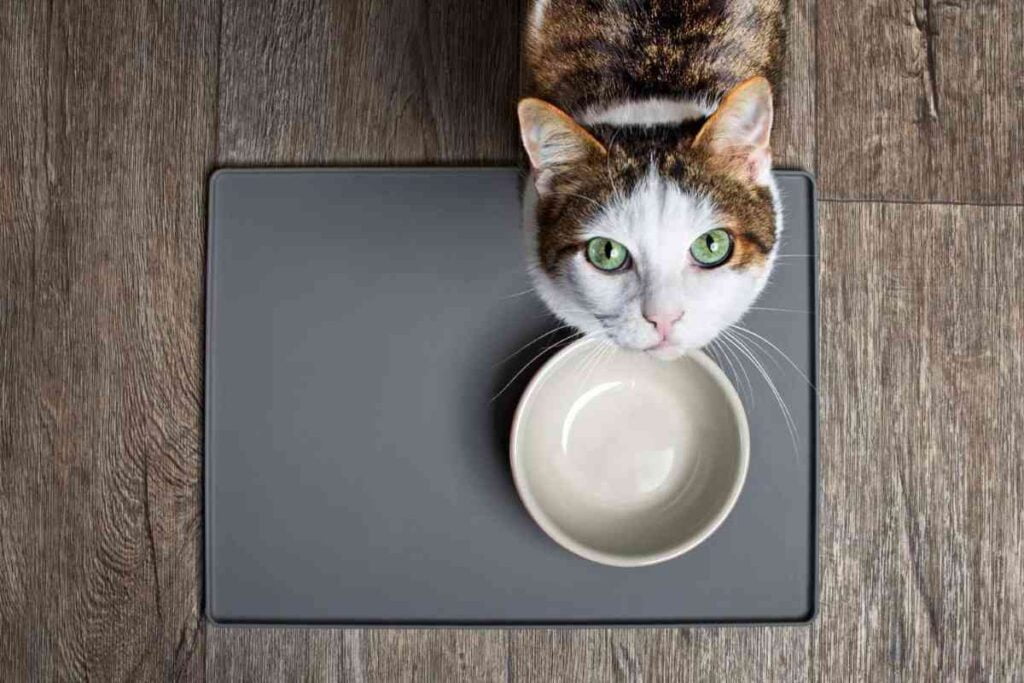
As caring pet owners, we want the best for our pet cats. This means ensuring their health and well-being specially if its a cat facing the challenges of liver disease. For such a pet, providing them with the right nutrition becomes is absolutely important. As their pet owner, you understand the significance of selecting the best canned cat food for liver disease, as it can make a world of difference in your furry friend’s quality of life.
In this comprehensive article, we delve into the world of specialized cat food options meticulously crafted to support feline liver health. Discover the top choices recommended by experts and fellow cat owners alike, as we help you navigate through the myriad of options and ensure your beloved cat receives the tender loving care and nutrition they deserve.
What is Liver Disease in Cats?
Feline liver disease encompasses a spectrum of conditions that can disrupt the liver’s normal functions. The liver serves as a central hub for multiple bodily processes, such as filtering toxins, breaking down nutrients, and synthesizing proteins. When liver function is impaired due to disease or damage, it can have far-reaching consequences for your beloved feline companion.
The impact of liver disease on a cat’s health can be profound. It may lead to symptoms like loss of appetite, weight loss, jaundice (yellowing of the skin and eyes), vomiting, diarrhea, lethargy, and increased thirst and urination. Identifying these signs early is crucial as it allows for timely intervention and management, potentially improving the cat’s prognosis and overall quality of life.
To provide the best care for your feline companion, understanding the significance of liver health and its role in their overall well-being is paramount. Nutrition, in particular, plays a crucial role in supporting liver function, making the selection of the right canned cat food for liver disease a vital aspect of their care. By addressing liver health with proper nutrition and veterinary guidance, you can give your furry friend the best chance at a healthier, happier life.
Buyer’s Guide For Cats With Liver Disease
Nutrition plays a pivotal role in managing feline liver disease. The right diet can provide essential nutrients and help alleviate the burden on the liver, promoting the organ’s healing and regeneration. Specifically formulated cat foods for liver health are designed to be easily digestible and provide balanced nutrition while limiting substances that can further strain the liver.
Key Nutrients and Ingredients Beneficial for Liver Health
When selecting canned cat food for liver disease, there are specific nutrients and ingredients that are particularly beneficial for supporting liver function:
- High-quality proteins: Cats require protein for their overall health, but those with liver disease may have difficulty processing certain proteins. Look for cat foods with easily digestible, high-quality proteins such as chicken or fish.
- Essential fatty acids: Omega-3 fatty acids, in particular, have anti-inflammatory properties and can aid in reducing liver inflammation.
- Antioxidants: These help neutralize harmful free radicals and protect liver cells from further damage.
- B vitamins: B vitamins, such as B12 and folate, are essential for liver function and can aid in the regeneration of liver cells.
Dietary Considerations for Cats with Liver Disease
Cats with liver disease may have unique dietary requirements. Here are some general dietary considerations to keep in mind:
- Low copper content: Excess copper can be harmful to the liver, so it’s essential to choose cat foods with low copper levels.
- Easily digestible carbohydrates: Easily digestible carbohydrates provide energy without burdening the liver.
- Restricted sodium: Limiting sodium intake can help manage fluid retention, which is a common issue with liver disease.
- Moisture content: Canned cat food often has higher moisture content, which can help cats stay hydrated, especially if they are not drinking enough water.
Criteria for Selecting Canned Cat Food for Liver Disease
Firstly, when choosing canned cat food for liver disease, it’s essential to consult with your veterinarian to get personalized advice for your cat’s specific condition. Your veterinarian can recommend specific brands or formulations that align with your cat’s individual needs and health status.
Secondly, Reading cat food labels is essential to ensure you are providing your cat with the right nutrition. Look for products that clearly state they are designed for liver health or liver support. Avoid cat foods that contain ingredients known to be harsh on the liver, such as excessive fat, certain preservatives, and high levels of copper.
Lastly, The ideal canned cat food for liver disease strikes a delicate balance between essential nutrients. It should contain high-quality proteins, moderate levels of easily digestible fats, and appropriate carbohydrates. Always check the nutritional information on the cat food packaging to ensure it meets your cat’s dietary requirements.
Remember, while nutrition plays a vital role in supporting liver health, it is only one aspect of the overall management of feline liver disease. Regular veterinary check-ups, medication compliance, and a loving, stress-free environment are equally important to help your feline companion on the road to recovery and a better quality of life.
Quick Overview for the Best Canned Cat Food For Liver Disease
Hill’s Prescription Diet Chicken Wet Cat Food
Purina Fancy Feast Wet Cat Food
Royal Canin Feline Health Nutrition
Our Top Picks for Best Canned Cat Food For Liver Disease
Here are our top picks for best canned cat food for liver disease:
1. Royal Canin Feline Health Nutrition
- Chicken Flavor
- Gravy Form
- For Adult Cats
- Wet Cat Food
Pros
- Perfect for cats with digestive issues.
- Designed for cats of all ages above 1.
- Helps cat maintain weight while providing it with necessary vitamins and minerals.
Cons
- A bit expensive.
Royal Canin Digest Sensitive Thin Slices in Gravy Wet Cat Food is a premium dietary solution meticulously tailored for cats aged one year and older with sensitive stomachs. Crafted by veterinarians and nutritionists, this specialized formula provides optimal support for digestive health and overall well-being.
The wet cat food boasts highly digestible proteins, enabling better nutrient absorption while reducing stool odor for a more pleasant living environment. Not only does it cater to sensitive stomachs, but it also addresses weight management with its thoughtfully balanced nutrition.
Enriched with a precise blend of vitamins and minerals, this cat food promotes your feline friend’s overall health and vitality. Count on Royal Canin’s scientific approach to deliver the finest care for your cherished pet’s specific needs.
2. Wellness Complete Health Chicken Dinner
- Antioxidants from Vitamin A & E
- Omega 3 & 6 fatty acids from Flax Seeds
- Supported by Prebiotic Fiber Sources
- Contains calcium and phosphorus from protein sources
- Wet Cat Food
Pros
- Has real protein as its primary ingredient and is free from grains.
- Contains chicken in a thick gravy to satisfy your cat’s hunger
- Is a wet food and can therefore help increase your cat’s hydration
Cons
- Some cats may not like the texture of the food.
Wellness Complete Health Grain-Free Wet Cat Food offers an exceptional dietary choice for adult cats, ensuring their daily nutritional needs are met. With real chicken as the first ingredient, this protein-dense and grain-free canned cat food delivers a delectable meaty flavor that satisfies even the most refined palate.
It is packed with essential vitamins, minerals, and fatty acids, that guarantee complete and balanced nutrition for your pet cat’s overall well-being. Moreover, the savory thick gravy enhances the dining experience.
With no added carrageenan, wheat, wheat gluten, corn, soy, artificial colors, or preservatives, this cat food prioritizes your pet’s health. Furthermore, it promotes healthy hydration, ensuring your cat stays properly nourished and content. Wellness Complete Health provides a natural, wholesome feast that your cat will adore.
3. Hill’s Prescription Diet Chicken
- Supports cat digestive health
- Contains soluble and insolube fiber
- High levels of electrolytes and Vitamin B
- Wet Cat Food
Pros
- Has antioxidants that are clinically proven to support a healthy immune system.
- Replenishes electrolytes that your cat may need to replace nutrients.
- Includes prebiotic fiber that promotes regular bowel movement
Cons
- Requires Vet approval to purchase.
Hill’s Prescription Diet i/d Digestive Care with Chicken Canned Cat Food is an expertly formulated product designed to support your cat’s digestive health. Developed by Hill’s nutritionists and veterinarians, this wet cat food is clinically proven to settle digestive upsets and enhance stool quality. Its highly digestible nutrition, enriched with prebiotic fiber, promotes smooth digestion and balanced bowel movements.
The inclusion of soluble and insoluble fibers contributes to optimal digestive function. Additionally, the cat food contains high levels of electrolytes and B vitamins to replenish lost nutrients during digestive upsets. Clinically proven antioxidants fortify the immune system, while omega-3 and omega-6 fatty acids foster healthy skin and a luxurious coat.
Hill’s Prescription Diet i/d Digestive Care Wet Cat Food is a trustworthy solution, ensuring your pet cat enjoys a happy, active life with improved digestive comfort.
4. Royal Canin Digestive Care Cat Food
- Ring shaped kibble
- Highly digestible proteins
- Effective for up to 95% cats
- Dry Cat Food
Pros
- The ring shaped kibble’s encourage slow eating.
- Has a savory aroma and satisfying texture so your cat never gets bored of eating these.
- Can we mixed with wet cat food
Cons
- A bit pricey.
Royal Canin Digestive Care Dry Cat Food is the ultimate solution for cats with sensitive stomachs, designed to address their unique dietary needs. The optimal blend of prebiotics and dietary fibers ensures healthy digestion, while the exclusive ring-shaped kibble encourages slower eating, reducing regurgitation.
Within just 10 days, over 95% of cats experience improved stool quality. With highly digestible proteins, this cat food strikes the perfect balance for a well-functioning intestinal tract. Royal Canin’s Feline Care Nutrition range is formulated by veterinarians and nutritionists, ensuring your cat’s specific care requirements are met.
Offering both wet and dry food options, Royal Canin delivers complete and balanced nutrition, catering to your feline companion’s magnificence.
5. Blue Buffalo Healthy Gourmet
- Has 4 different flavors to choose from
- 6 different sizes
- Wet Cat Food
Pros
- Contains real high quality chicken to support healthy muscles in your cat.
- Has no artificial flavors or additives.
- Healthy, wholesome ingredients that are perfect for your cat’s diet.
Cons
- It is dryer than other wet foods.
Blue Buffalo Healthy Gourmet Natural Adult Flaked Wet Cat Food in Chicken flavor is a delightful treat for feline taste buds. With real chicken as the primary ingredient, this protein-packed canned cat food supports healthy muscle maintenance.
Its flaked texture enhances the dining experience, appealing to even the most discerning cats. Crafted with only the finest natural ingredients, fortified with essential vitamins and minerals, it ensures complete and balanced nutrition.
Blue Buffalo takes pride in their commitment to wholesome ingredients, devoid of chicken by-product meals, corn, wheat, soy, artificial flavors, or preservatives. With 24 convenient cans in one pack, this healthy gourmet wet cat food offers a tasty and nutritious option to pamper your beloved adult cat.
- Multiple flavors to choose from
- For adult cats and kittens
- Wet Cat Food
Pros
- Grain free solution to your cat’s daily diet.
- Has a tender texture that is delightful for your cats.
- Has different flavors that use real ingredients instead of artificial flavors.
Cons
- Some cats may not like its wetness.
Purina Fancy Feast Grain-Free Pate Wet Cat Food offers a delightful feast for your feline companion. The Classic Pate Tender Beef & Liver Feast comes in 24 convenient 3 oz. cans, making it a convenient and nutritious choice for adult cats.
Made with high-quality beef and liver, this grain-free formula ensures a balanced diet for your furry friend. The tender pate texture caters to their taste preferences, while essential vitamins and minerals support overall health.
Purina Fancy Feast is committed to crafting gourmet recipes with real meat, poultry, or seafood to provide protein-rich nutrition that cats love. Each serving delivers complete and balanced nourishment, promoting their well-being. With recyclable pull-tab cans and stringent quality testing, this wet cat food ensures a safe and enjoyable dining experience for your beloved feline.
Frequently Asked Questions (FAQs)
Here are some frequently asked questions about canned cat food for liver disease. Hopefully, these help you clear away any doubt you have left regarding this topic:
Q1. What is liver disease in cats, and how can diet play a role in managing it?
Liver disease in cats refers to various conditions that affect the liver’s function and can range from mild to severe. The liver is a vital organ responsible for detoxification, metabolism, and nutrient storage. A proper diet can support liver function by providing essential nutrients and reducing the workload on the liver. Canned cat food for liver disease is often formulated with easily digestible proteins, low copper content, and other liver-supportive nutrients.
Q2. What are the common symptoms of liver disease in cats?
The symptoms of liver disease in cats can be vague and easily mistaken for other health issues. Common signs include loss of appetite, weight loss, jaundice (yellowing of the skin and eyes), vomiting, diarrhea, increased thirst and urination, and lethargy. If you notice any of these signs, it’s crucial to consult a veterinarian for proper evaluation and diagnosis.
Q3. Can canned cat food cure liver disease in cats?
While canned cat food formulated for liver disease can support liver health and overall well-being, it cannot cure the disease. It is essential to consult a veterinarian for a comprehensive treatment plan that may include dietary changes, medication, and other interventions.
Q4. Are there specific ingredients to avoid in canned cat food for liver disease?
Yes, it’s important to avoid cat foods with high copper content, excessive fat, and certain preservatives that can be harsh on the liver. Always check cat food labels and opt for products that are designed explicitly for cats with liver issues.
Q5. Is homemade cat food a viable option for cats with liver disease?
Homemade cat food can be an option, but it requires careful consideration and consultation with a veterinarian or veterinary nutritionist. Preparing balanced and liver-friendly homemade cat food can be challenging, and improper nutrition may worsen the condition. Always seek professional guidance before switching to homemade diets.
Q6. How can I transition my cat to a new canned cat food for liver disease?
To transition your cat to a new canned cat food, introduce the new food gradually, mixing it with the current diet over several days. Monitor your cat’s response during the transition to ensure they tolerate the new food well.
Remember, every cat’s health condition is unique, and individual dietary needs may vary. Consult your veterinarian to determine the best-canned cat food for your cat’s specific liver disease and overall health requirements. A tailored diet, along with proper medical care, can enhance your feline friend’s quality of life and well-being.
Conclusion
In conclusion, finding the best-canned cat food for liver disease is essential for providing optimal care to our feline friends. Liver disease in cats can have significant health implications, and a well-balanced diet plays a crucial role in managing the condition and promoting overall well-being. Look for canned cat foods specifically formulated to support liver health, with easily digestible proteins and the right balance of nutrients.
Consulting with a veterinarian is vital to determine the most suitable diet for your cat’s specific liver disease and individual needs. Each cat is unique, and what works for one may not be suitable for another. By considering your cat’s health requirements and nutritional needs, you can make an informed decision and provide them with the best possible care. Remember, your cat’s health is a top priority, so always prioritize their well-being and happiness when choosing canned cat food for liver disease.
